Risky Retrieves
Think before you “send,” especially in any of these scenarios

By Bill Miller
There’s a gut punch of regret that’s more nauseating than spoiled pork sausages and more painful than a DIY appendectomy. And if you put your dog in danger by sending him or her on an ill-advised retrieve, the anguish will hit you in a split second.
So, consider the following situations, think before you “send” and, hopefully, you’ll avoid that awful, sinking feeling.
Into the Unknown
Frantic. Nothing else describes how my longtime hunting friend Dave and I felt as we stood on a rock island in a wild rice marsh in eastern Manitoba. We, including Dave’s young yellow Lab, Blaze, had been dropped there by the outfitter with a promise to pick us up “sometime after dark.”
At sunset, we shot a teal that buzzed the outside edge of our spread in open water, surrounded by thick stalks. It fell dead—we thought. And Blaze saw it fall, presenting an easy, confidence-building retrieve for the young dog.
Dave sent the dog, which was wearing a training collar. She hit the water hard and swam straight toward the mark. Then the duck suddenly tipped upright and began to swim quickly away. Blaze was too close to risk a shot.
The chase was on, going straight away into the rice until both duck and dog were out of sight. We unloaded our guns and strained our ears to hear what we couldn’t see. It was getting dark. Then we could hear nothing.
As dusk slipped away, Dave pleaded on the whistle even though we worried it might discourage the young dog’s drive. Nothing.
Darkness came. We turned on headlamps and blew louder. Nothing. We knew that when we heard the outboard, it would still take 10 minutes for the guide to meander through the rice to reach us.
Though it was his last resort, Dave buzzed the dog’s collar. I fired my gun once and Dave blew “tweet, tweet, tweet” harder than ever. We waited.
After what seemed like forever, we heard huffing, puffing, and then splashing. A minute later a faint silhouette appeared at the edge of the decoys. Then in our lights we saw a yellow head gliding toward our rock. Dave lifted Blaze out of the water and embraced her. He may have kissed her.
The event apparently impacted us a lot more than it did Blaze, who turned into a fine retriever of ducks, pheasants, and everything else Dave and his son shot over her for many years. But it scared the bejeebers out of us. Writing about it all these years later still gives me goosebumps.

Without precautions, ice, fog, and other variables can affect your control of situations.
Into the Fog
Hunt test series are supposed to be set up so that you can see your dog at all times, but it’s not uncommon for one to require the dog to penetrate cover where it may be temporarily out of sight of the handler. At least it’s a controlled situation in which a conscientious judge has (hopefully) scouted out any potential hazards.
In hunting scenarios, when your dog is out of your sight, you never really know what it’s facing. That goes for heavy cover like wild rice beds, buckbrush in the timber, and heavy cattails in the marsh. Sometimes cover can be so thick it would be impossible for you to reach your dog, should it get into trouble. Think twice or three times before sending the dog in alone. The safe solution is to go with the dog, even in a boat.
But what scares me most is thick fog on big, open water.
For me, heavy fog is almost always a “no send” situation, even if I have a boat to follow. When you lose sight of your dog swimming in fog, there is no way to tell which direction it went. Obsessed with catching a swimming, diving bird, your dog is going to lose track of direction, too. Once it makes the retrieve, your whistles and even gunshots are muffled and will play tricks in the fog.
Nope. Ducks that fall beyond shotgun range in the fog are picked up by the boat when it’s my dog. I’ve got a GPS and a compass to get me back to Point A. Duck dogs do not come so equipped, as far as I know.
Into the Black Water
Alligators are expanding their range. Depending on who you believe, there are verified alligator populations in Florida, Georgia, Alabama, Mississippi, coastal North and South Carolina, East Texas, the southeast corner of Oklahoma, and even the southern tip of Arkansas. I might find that list hard to believe except that while quail hunting some 50 miles inland from the Texas Gulf Coast, I was with a guide grieving the loss of a fine dog who’d taken a swim a week earlier and fallen victim to a gator. That was on a ranch so dry we worried about the muffler of our truck touching off a grass fire.
Gator country includes some major league duck hunting states in the Atlantic, Mississippi, and Central flyways. So for me, as a born and bred Yankee, I won’t be sending my dogs on any water retrieves should I make a freelance trip to one of Louisiana’s fine WMAs or pretty much anywhere in Florida. Even local hunters—who know where gators are likely to be and the conditions in which they’ll be active—exercise extreme caution.
As should we all.
Into a Crowd of Strangers
Another potentially dangerous situation for your dog involves hunting with folks you don’t know. There is excitement in hunting. It’s a major part of the reason any of us do it. But when it comes to safety, that excitement must be controlled.
If you hunt with a guide, you can count on a safety plan before the hunt. He or she will go through exactly how guns are to be safely handled, loaded, and fired, and how to behave while dogs are retrieving. If I have my dog out with a group of hunters I don’t know, I give the same lecture. To do anything less is a disservice to your devoted duck dog.
If there are any violations, I pack up my dog and go home.
Into Chaos
What do all dangerous situations for your dog have in common? Mostly one thing: You’re not in control. When a dog is out of your sight, you’re not in control. When there’s hidden danger (e.g., gators and snakes), you’re not in control. When you aren’t familiar with other hunters in the blind, you’re not in control. And when you can’t control your dog’s behavior, you’re definitely not in control.
Keeping your dog safe means taking every possible precaution to maintain control at all times. That’s why you need to be even more on guard with a young dog still learning the game. If that means leaving your shotgun cased to fully concentrate on handling the dog, it’s more than worth it.
Staying in control is the best way to prevent ever feeling that horrible gut punch you may regret for the rest of your life.

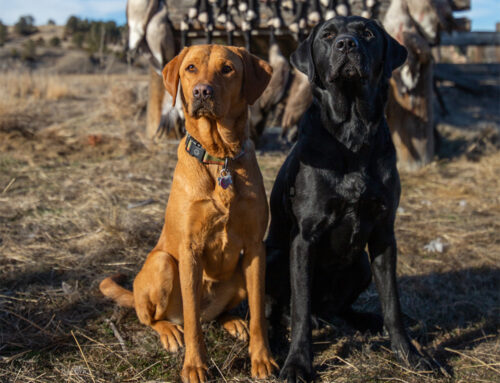
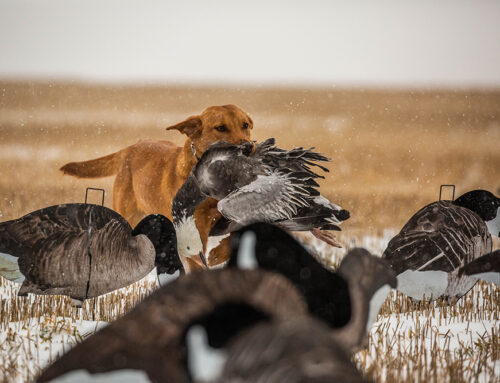
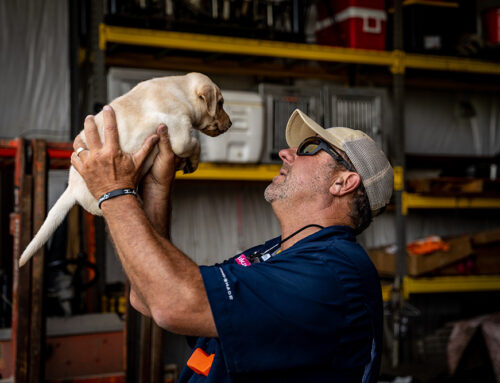
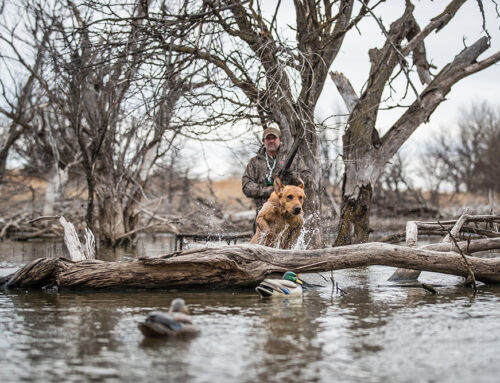
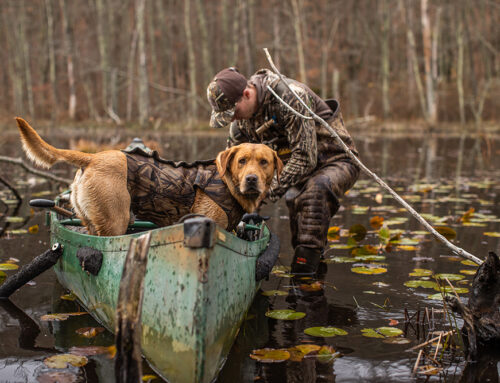
Leave A Comment